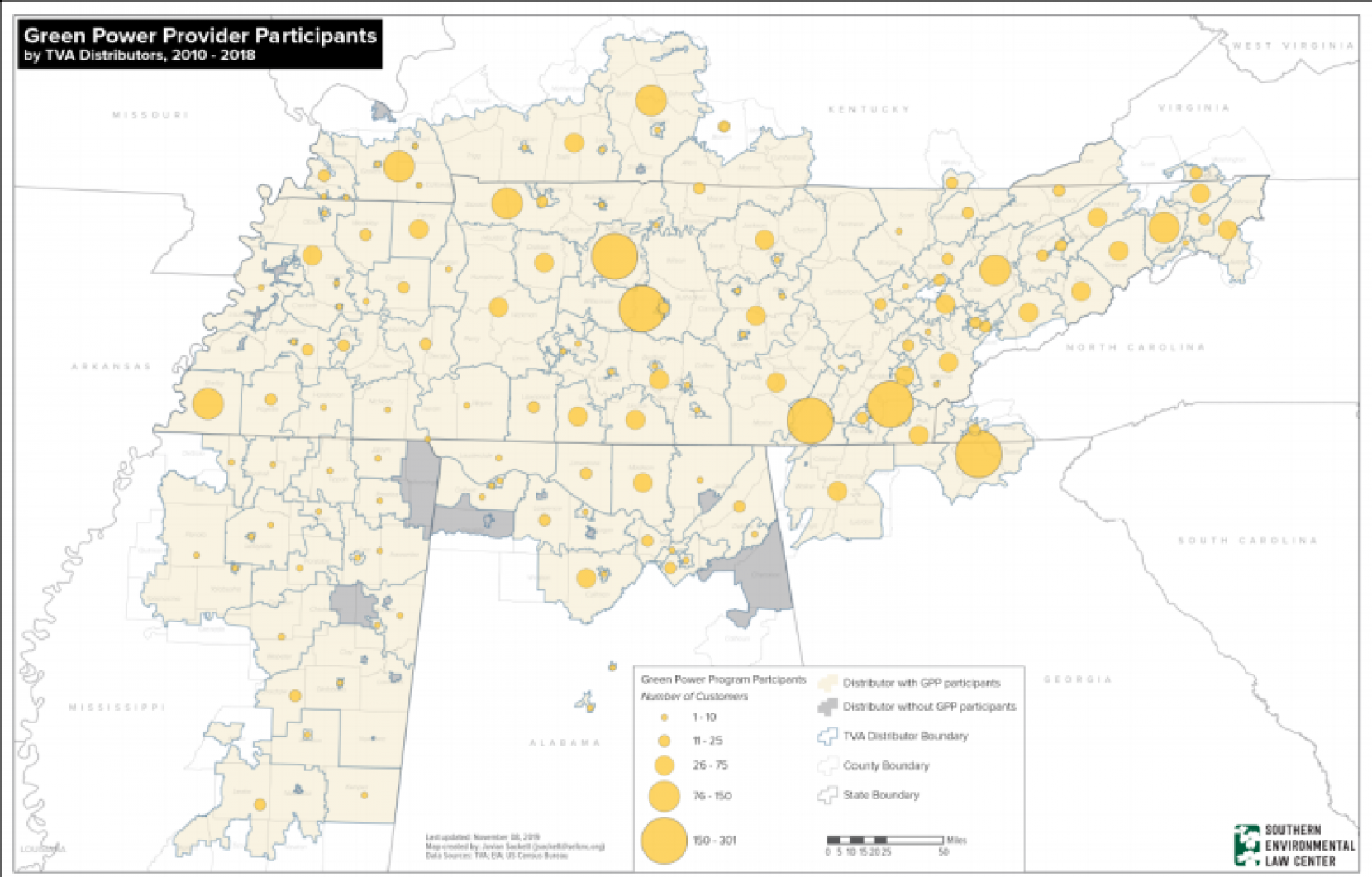TVA to terminate its popular payback program for going solar
You know the deal. When a household with rooftop solar panels produces more energy than it can use, it sends the excess back to the grid, and many utility payback programs exist as incentives for this kind of contribution.
But Tennessee Valley Authority has now put out an after-the-fact analysis to try to justify axing its current payback program. The utility’s decision not only limits consumer choices for energy options, but also puts its customers who intend to go solar at an economic disadvantage. And with no real opportunity for public input.
SELC attorneys Amanda Garcia and Christina Reichert sent a letter to the federally-owned electric utility this month in opposition to ditching the program, called Green Power Providers, without providing a replacement program that fairly compensates customers for solar.
“TVA is focused on how best to maintain its existing monopoly business model, rather than adapting and changing to the benefit of ratepayers and communities,” says Amanda Garcia, a managing attorney in SELC’s Tennessee office. “Perhaps as a result, TVA now seeks to terminate the Green Power Providers program and ‘replace’ it with a ‘program’ that would not compensate customers for the value they provide to the grid and to the Valley.”
The utility claims it is getting rid of Green Power Providers because it’s failing.
“To the extent the GPP program is failing, it’s because of the program’s design, which has artificially stifled investment in small-scale solar in the Valley,” says Reichert, an associate attorney.
Green Power Provider Participants by TVA Local Distribution Companies, 2010–2018
Current and former participants of the program being axed span across the Tennessee Valley, across a diverse range of local power companies, with large concentrations in places like Chattanooga and Nashville. This distribution of customers calls for more opportunities for distributed solar generation, but instead TVA is ignoring its own market research to look toward utility-scale solar, instead.
Adds Reichert, “Distributed solar generation does not hamstring utility-scale solar, but rather adds independent value to the grid in terms of resiliency and customer choice.”
SELC will be monitoring the issue closely.
